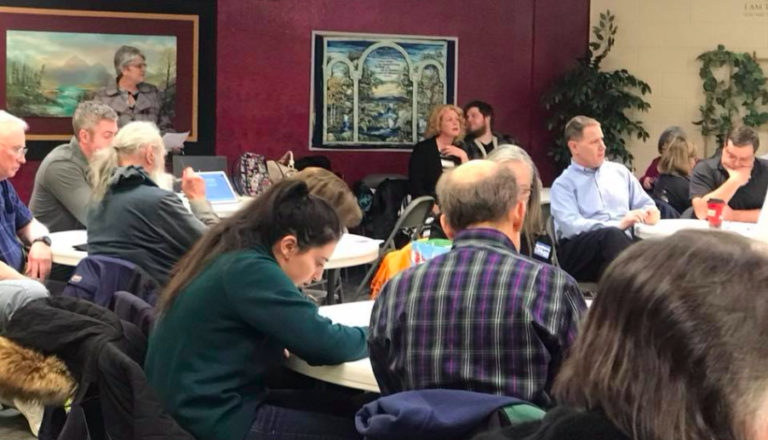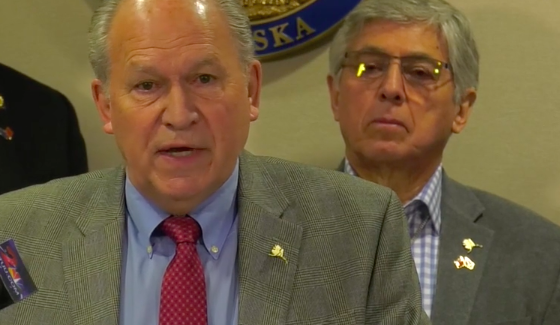By WIN GRUENING
SENIOR CONTRIBUTOR
In Alaska, amid much fanfare, an application for a voter initiative purporting to address legislative conflicts was certified by the Lt. Governor in October.
The measure, innocuously titled, “Alaska Government Accountability Act”, is being co-sponsored by Rep. Jonathan Kreiss-Tomkins, D-Sitka, Rep. Jason Grenn, I-Anchorage, and political activist Bonnie Jack of Anchorage.
According to the sponsors, the act would primarily reinforce conflict of interest rules surrounding legislative votes.
Our state legislators are already governed by the Legislative Branch Ethics Act, and I believe this latest salvo goes too far and would lead to needless litigation and government dysfunction.
The measure includes wording identical to House Bill 44 promoted by Rep. Grenn in last year’s legislative session. After it failed to pass, Rep. Grenn and supporters formed Alaskans For Integrity, a sponsoring group backed by Democrat strategist, Jim Lottsfeld. The group, almost entirely funded by Outside money, is spending hundreds of thousands of dollars using paid signature gatherers to meet a January deadline to qualify the measure for the November ballot.
The proposed act would require a legislator to declare conflicts of interest before voting in a legislative committee and ask to be excused from voting in the legislature if the legislator has a financial conflict.
The proposal contains some other seemingly beneficial provisions, such as curbing legislative foreign travel and restricting foreign money from influencing our elections. However, the measure adds language restricting legislators from “taking or withholding official action that would help or harm the financial interests of a legislator’s family, employer, potential employer, and anyone from whom the legislator’s immediate family earned more than $10,000 in the prior year.”
This provision clearly targets employees of oil companies – specifically Sen. Kevin Meyer and Sen. Peter Micciche – who both work in the oil industry.
This is a slippery slope.
By expanding the definition of whose financial interests could be affected by a potential legislative action or vote, this will effectively ensnare many more legislators who have financial connections to all sorts of industries.
Rep. Chris Tuck and Sen. Bill Wielechowski both earn significant income from a union representing over 5,000 members throughout Alaska. Presumably neither could take any official action that might benefit union workers.
Rep. Neal Foster is a member of the board of directors of two Native corporations that have scores of subsidiary businesses that potentially could conflict with any official action he might take.
And that’s just for starters. There are many more examples. This applies to actions affecting entities related to a legislator’s immediate family as well.
Taking this to its illogical conclusion, one could argue that fishermen could not vote on legislation affecting the fishing industry and lawyers couldn’t vote on any legal issue such as, say, tort reform. Even though they may be self-employed, theoretically couldn’t their vote benefit them significantly?
Although the measure carves out an exception when voting for a budget appropriations bill, one wonders why voting on an issue would be forbidden in committee or on the House or Senate floor but not after the issue is buried in the budget.
Alaskans understand that part-time citizen legislators and their spouses are permitted (and expected) to earn outside income. Unnecessary burdens discouraging citizens from government service should be avoided. Otherwise, our legislature would eventually be limited to people who are retired, unemployed, or independently wealthy.
Voters were completely aware of the employment of Sen. Meyer and Sen. Micciche when they were elected and may have chosen them partly because of their knowledge and expertise in the oil industry. Likewise, others were elected by voters fully cognizant of their union affiliations, Native corporation alliances, or chosen vocations.
Obviously, if legislation solely benefited a legislator’s employer a true conflict would exist. But why prevent legislators from voting on matters affecting a general industry or membership group to which they belong?
What exactly is the problem this initiative would cure? No current legislator or anyone running for elected office is hiding their employment. Often, candidates and legislators cite their employment as qualifications in campaigning for elected office.
Isn’t this just a “solution” looking for a problem? Or another partisan effort to gain political advantage? And why only attack the Legislature? The Executive Branch has far less scrutiny and oversight.
Alaska’s #1 problem is our revenue shortfall: what public opinion poll suggests it is corruption?
Alaska’s ethics laws seek to restore the public’s trust in our elected officials and foster good government. Ethics reform should concentrate more on transparency and accountability instead of creating more arcane, impossible to enforce rules that create loopholes.
Who wants the drama of another hyped-up initiative campaign? Provided with the facts, voters can determine whether an elected official has a conflict.
The electorate will vote accordingly.
Win Gruening was born and raised in Juneau and retired as the senior vice president in charge of business banking for Key Bank in 2012. He is active in civic affairs at the local, state, and national level.




